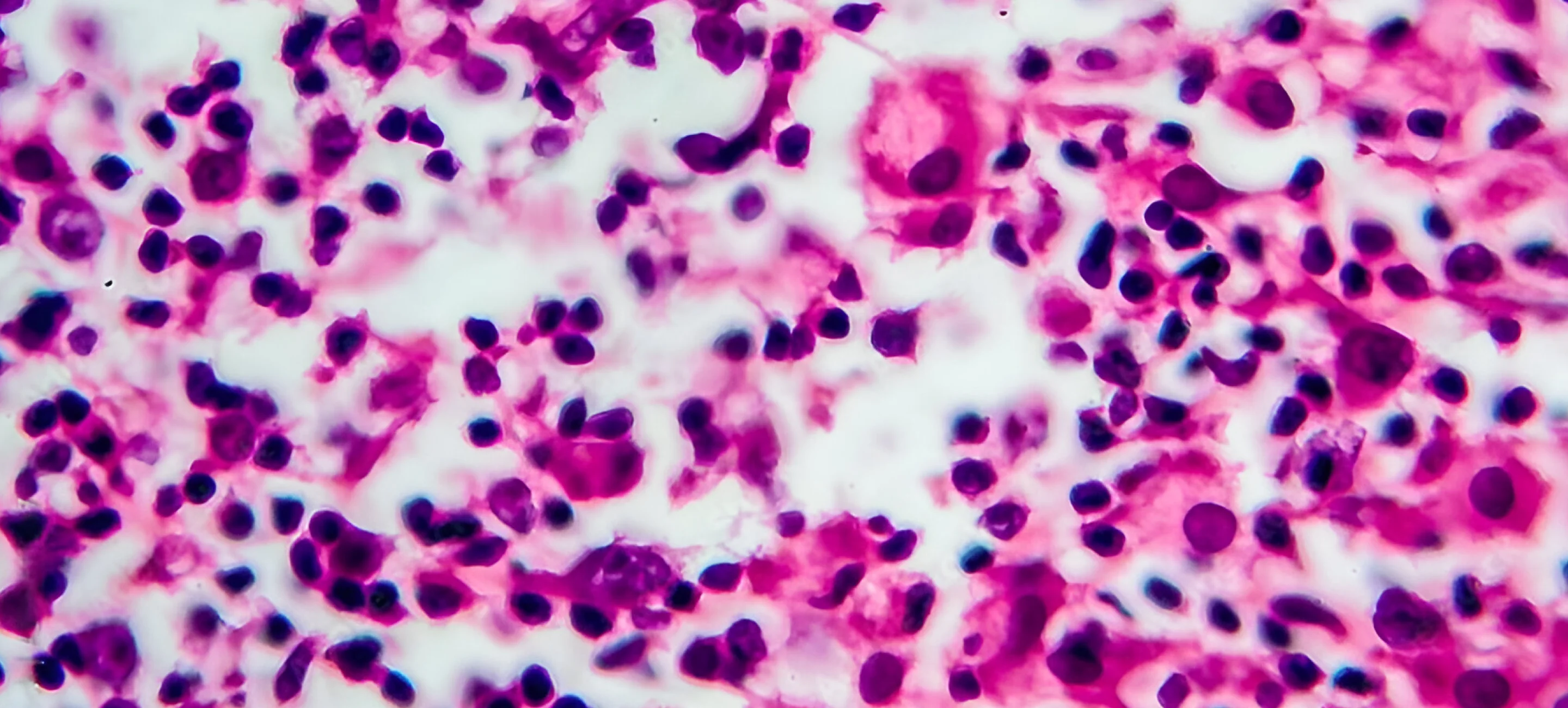
Welcome to Bhagwan Mahaveer Cancer Hospital & Research Centre (BMCHRC), a beacon of hope and healing for individuals confronting Hodgkin's Lymphoma. Our institution stands as a pillar of comprehensive care, where cutting-edge treatments merge with compassionate support to guide patients towards optimal health outcomes.
Welcome to the Hodgkin's Lymphoma Information Center at Bhagwan Mahaveer Cancer Hospital & Research Centre (BMCHRC), where we are committed to providing comprehensive care and support to individuals affected by Hodgkin's Lymphoma. Our center serves as a dedicated resource for patients, families, and caregivers seeking reliable information, expert guidance, and compassionate care throughout their journey with Hodgkin lymphoma.

Hodgkin's Lymphoma is a type of Cancer that originates in the lymphatic system, a vital part of the body's immune system. It is characterized by the abnormal growth of cells called Reed-Sternberg cells, which are large, abnormal lymphocytes. Hodgkin's lymphoma typically starts in the lymph nodes and can spread to other parts of the body if left untreated.

The exact cause of Hodgkin's Lymphoma is unknown, but several risk factors may increase the likelihood of developing the disease. These risk factors include a weakened immune system, such as in people with HIV/AIDS or those who have received an organ transplant, as well as a family history of Hodgkin's Lymphoma or certain infections such as the Epstein-Barr virus (EBV).

The signs and symptoms of Hodgkin's Lymphoma can vary but often include painless swelling of lymph nodes, particularly in the Neck, armpits, or groin, persistent Fatigue, Fever, Night Sweats, unexplained weight loss, itching, and increased susceptibility to infections. It's essential to seek medical evaluation if these symptoms persist or worsen.
.webp)
Diagnosing Hodgkin's Lymphoma typically involves a combination of physical examination, imaging tests such as CT Scans or PET Scans, biopsy of an affected lymph node or other affected tissue, and laboratory tests to analyze blood and lymphocyte counts. Accurate diagnosis is crucial for determining the appropriate treatment approach.
Meet our esteemed team of medical professionals, each equipped with years of specialized expertise and unwavering dedication to patient care.
Request a callback from our healthcare specialist
The exact cause of Hodgkin's Lymphoma is unknown, but factors such as a weakened immune system, family history of the disease, and certain infections like Epstein-Barr virus (EBV) may increase the risk.
Common symptoms include Painless Swelling of Lymph Nodes, Fatigue, Fever, Night sweats, unexplained weight loss, itching, and increased susceptibility to infections.
Diagnosis involves physical examination, Imaging Tests, biopsy of affected tissue, and Laboratory Tests to analyze blood and Lymphocyte counts.
Treatment may include Chemotherapy, Radiation Therapy, Targeted Therapy, Immunotherapy, or Stem Cell Transplantation, depending on the stage and subtype of the disease and the patient's overall health.
We offer Supportive Care Services including Pain Management, medications to manage side effects, Blood Transfusions, Nutritional Support, Psychological Counseling, and complementary therapies to improve quality of life during treatment.
Yes, Hodgkin's Lymphoma is considered one of the most curable forms of Cancer, especially when diagnosed and treated in its early stages. With advancements in treatment modalities, including Chemotherapy, Radiation Therapy, and Targeted Therapies, many patients achieve long-term remission or even cure.
Hodgkin's Lymphoma is staged based on the extent of the disease's spread. The stages range from I (limited to a single lymph node region or organ) to IV (spread to multiple lymph nodes or organs). Each stage may be further classified as A (without systemic symptoms) or B (with systemic symptoms such as Fever, Night Sweats, or Weight loss).
Treatment for Hodgkin's Lymphoma can cause various side effects, including Fatigue, Nausea, Vomiting, Hair Loss, increased risk of infections due to Low Blood Cell counts, and long-term complications such as Infertility or secondary Cancers. Your healthcare team will monitor and manage these side effects to improve your quality of life during treatment.
While many patients achieve remission with treatment, Hodgkin's Lymphoma can recur even after successful initial treatment. Regular follow-up appointments and ongoing monitoring are essential to detect any signs of relapse early and provide prompt intervention if necessary.
Adopting a healthy lifestyle can complement medical treatment for Hodgkin's Lymphoma. This includes maintaining a balanced diet rich in Fruits, Vegetables, and whole grains, staying physically active, managing stress through relaxation techniques or mindfulness practices, getting adequate rest, and avoiding tobacco and excessive alcohol consumption.
Certain treatments for Hodgkin's Lymphoma, such as Chemotherapy and Radiation Therapy, may affect fertility in both Men and Women. Before starting treatment, discuss fertility preservation options with your healthcare team, including sperm or egg banking, to preserve the possibility of future biological children.
Immunotherapy, such as checkpoint inhibitors, can help the immune system recognize and attack Cancer cells in Hodgkin's Lymphoma. This approach has shown promising results, particularly in patients who have relapsed or are refractory to other treatments.
While the risk is relatively low, Hodgkin's Lymphoma survivors may have a slightly increased risk of developing secondary cancers later in life, particularly due to exposure to certain treatments like Radiation Therapy and Chemotherapy. Regular follow-up care and cancer screening are essential for early detection and management of any potential secondary cancers.
Since the exact cause of Hodgkin's Lymphoma is unknown, there are no specific prevention strategies. However, maintaining a healthy lifestyle, avoiding exposure to known risk factors where possible, and participating in regular medical check-ups may help detect any signs of the disease early and improve outcomes.
Supporting a loved one with Hodgkin's Lymphoma involves offering emotional support, accompanying them to medical appointments, helping with daily tasks, and actively listening to their concerns. Educate yourself about the disease and its treatment options to provide informed support and encouragement throughout their journey.